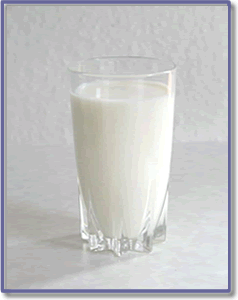Fats
Fats are another essential nutrient. Small amounts of fats are needed in the daily diet, especially during adolescence. Fats are required by the body for the repair of cells and for the production of chemicals called hormones. Body fat is used as insulation to keep the body warm, and it also provides a cushion to protect the body’s vital organs. Like complex carbohydrates, fats provide a rich source of energy. In fact, fats contain about twice as much energy as found in equal amounts of carbohydrates. Unlike carbohydrates, fats can be stored in the body for later use.
 Despite the importance of fat in the daily diet, eating excess fat can increase health risks. Eating too many foods high in fat can reduce a person’s appetite for other nutritious foods. In addition, unused fat can produce excess body weight, which puts stress on the cardiovascular system.
Despite the importance of fat in the daily diet, eating excess fat can increase health risks. Eating too many foods high in fat can reduce a person’s appetite for other nutritious foods. In addition, unused fat can produce excess body weight, which puts stress on the cardiovascular system.
One category of fat is referred to as saturated fats. These are found mainly in foods from animals and some plants. Sources of saturated fats include: beef, pork, lamb, poultry, veal, whole and 2% milk, cheese, butter, cream, coconut oil, palm oil, cocoa butter. Research shows that people who consume a high amount of saturated fats put themselves at risk for heart disease.
The problem with saturated fats is that it contains a substance called cholesterol. Cholesterol is a waxy substance naturally found in blood. Eating foods high in saturated fats, such as bacon, ice cream, and egg yolks, adds cholesterol to the body’s natural level. Excess cholesterol clings to the inside walls of the blood vessels, creating a build-up which can partially or completely block the normal flow of blood through the veins and arteries. This serious condition is known as atherosclerosis, which can cause other serious health problems such as stroke or a heart attack. However, it is possible to reduce the excess cholesterol by limiting the intake of foods that are high in cholesterol and saturated fat. Unsaturated fats can be substituted in cooking and eating for those containing saturated fats.
It is estimated that 20-30% of a person's daily calories should come from fats.

